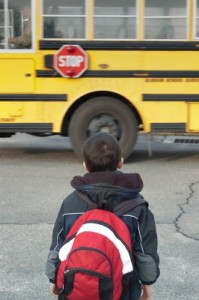Ways to tell if your child is being bullied or is a bully.
The government’s stop bullying website has a wealth of information for those concerned about helping kids. One of my favorite pages is the article on warning signs. It covers both if your child is being bullied or if your child is a bully. (see: http://www.stopbullying.gov/at-risk/warning-signs/index.html)
According to the website – only 30% of all bullying is reported to an adult. If this statistic is correct it means that 70% of all bullying is not being reported. Which means, we adults, need to be aware that if we do witness bullying or are told about it – to take it seriously – because it’s probably bad enough that what is happening warranted taking the risk of telling an adult.
It also means that we can’t wait for kids to tell us something is wrong. We have to be tuned into their behavior to see if any patterns emerge (ie: don’t freak out at single incidences, but consider the behavior in context).
Anyway, here are some of the signs to look for:
If your child is being bullied:
- Unexplainable injuries
- Lost or destroyed clothing, books, electronics, or jewelry
- Frequent headaches or stomach aches, feeling sick or faking illness
- Changes in eating habits, like suddenly skipping meals or binge eating. Kids may come home from school hungry because they did not eat lunch.
- Difficulty sleeping or frequent nightmares
- Declining grades, loss of interest in schoolwork, or not wanting to go to school
- Sudden loss of friends or avoidance of social situations
- Feelings of helplessness or decreased self esteem
- Self-destructive behaviors such as running away from home, harming themselves, or talking about suicide
If you suspect your child is a victim of bullying, don’t panic. Touch base with them every day and ask them to tell you what is happening. Give them time and eventually they will tell you what is bothering them, though it may take a few weeks. If you suspect bullying, my book can help – you can read it together and discuss it and let them know you are there to help them if anything ever happens to them. (http://thebullyvaccine.com/book.html)
If they are experiencing chronic bullying, you might want to consider getting the toolkit – which will help you help your child come up with a plan to deal with the bullying effectively so that you can work as a team to help them regain control. (http://bullyvaccineproject.com/series/bully-vaccine-toolkit/)
If your child is a bully:
- Get into physical or verbal fights
- Have friends who bully others
- Are increasingly aggressive
- Get sent to the principal’s office or to detention frequently
- Have unexplained extra money or new belongings
- Blame others for their problems
- Don’t accept responsibility for their actions
- Are competitive and worry about their reputation or popularity
If you suspect your child is a bully, or you have been notified that they are behaving inappropriately, consider taking the free – what to do if you child is a bully free e-course – here on the website. (http://bullyvaccineproject.com/what-to-do-if-your-child-is-a-bully/)

